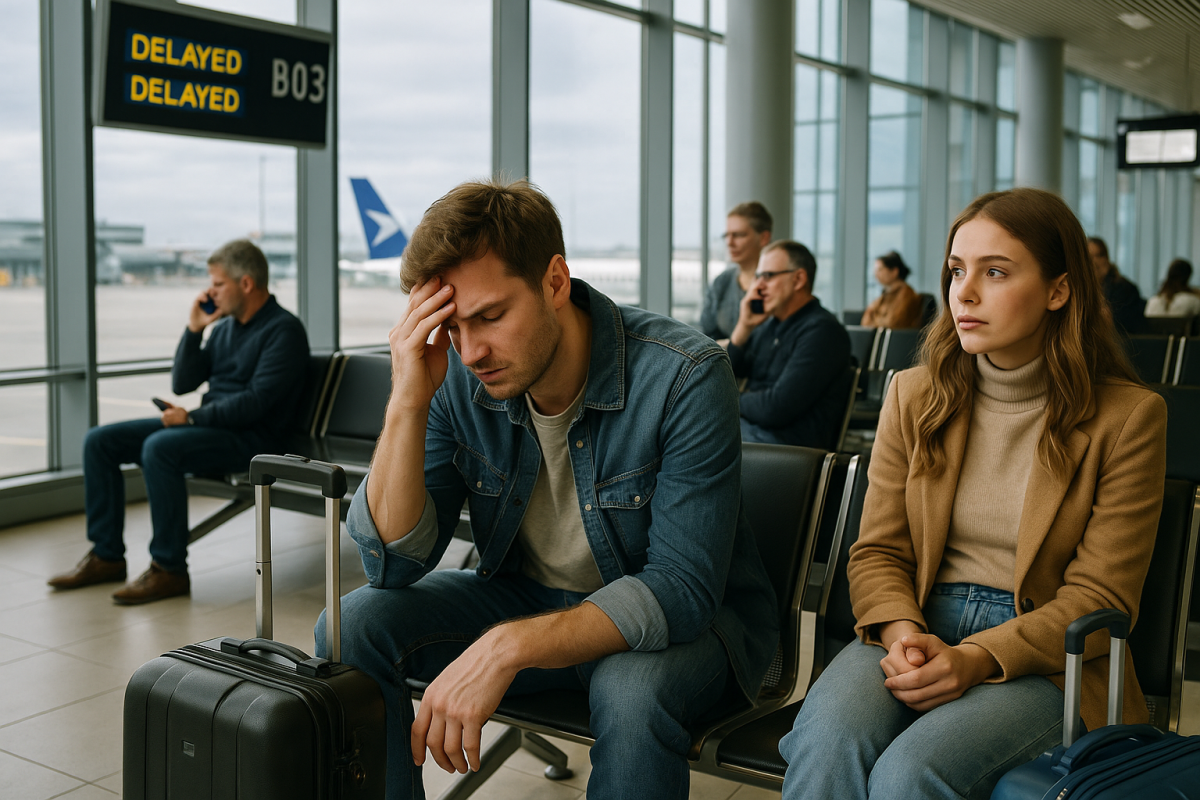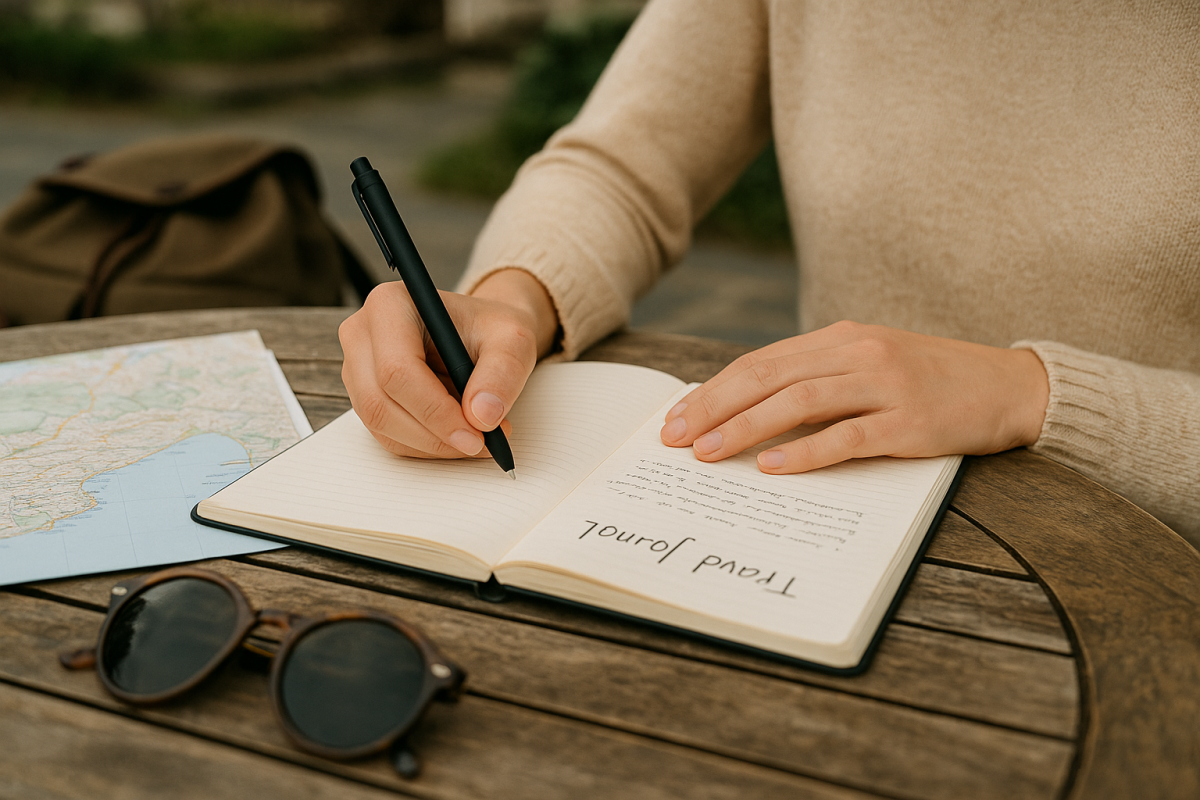Travel isn’t always picture-perfect. Behind every stunning Instagram photo lies a reality of airport delays, lost luggage, language mix-ups, and moments of exhaustion. Yet, what if we told you that the stress of travel isn’t something to avoid — but something to embrace? In fact, stress can be a key ingredient that makes a journey feel alive, real, and unforgettable. Here’s how to transform travel stress into meaningful adventure.
Understanding the Nature of Travel Stress
Let’s face it: even the most seasoned travelers feel stressed sometimes. Flights get delayed, hotels get overbooked, GPS fails, and plans crumble. But travel stress is different from everyday stress — it’s not about survival, but about adaptation. It pushes you to step outside your comfort zone, to stay flexible, and to see the world through new eyes.
According to the World Tourism Organization, over 60% of travelers report feeling anxious before or during their trip — not because something is wrong, but because the unfamiliar is unpredictable. Learning to navigate this uncertainty is part of what makes travel transformative.
1. Change Your Mindset: See Stress as Part of the Story

Instead of fighting stress, acknowledge it. You missed your train? Maybe that’s the universe giving you a new view of the city. You lost your luggage? Perhaps it’s a chance to travel lighter. Every traveler has a story that starts with “At first, everything went wrong…” — and ends with laughter later.
Reframe stress as an essential part of the travel narrative. The mishaps often become the memories you retell the most. They add texture, emotion, and humanity to your adventures.
2. Travel Slower
Much of travel stress comes from trying to do too much. We rush through cities, check off attractions, and fill our schedules until there’s no room for spontaneity. Slow travel — staying longer in fewer places — is the antidote.
Walk instead of taking taxis. Sit at a café and observe daily life. Leave space for nothingness. When you slow down, you notice details that fast travelers miss: the rhythm of a local market, the sound of church bells at noon, the scent of fresh bread drifting through an alleyway.
3. Simplify Before You Go
Preparation is peace. The fewer decisions you need to make on the road, the calmer you’ll feel. Before traveling, scan digital copies of your documents, confirm hotel check-ins, and pack versatile clothing. Bring fewer items — not more. Minimalism doesn’t just save luggage space; it gives you mental space.
Pro Tip: Choose one reliable travel app for tickets and navigation instead of juggling five. Complexity creates anxiety; simplicity builds confidence.
4. Learn to Breathe — Literally

When stress hits — a tight connection, a crowded terminal, an argument with a taxi driver — pause and take three deep breaths. Breathing calms the nervous system and anchors you to the present moment. It’s simple, free, and always available.
In mindfulness practices, this is called response over reaction. Instead of letting chaos control you, you learn to choose your response. The next time you’re waiting in a long queue, treat it as a chance to observe people, listen to the languages around you, and realize: you’re already part of the adventure.
5. Focus on Human Connections
Stress often disappears when you connect with others. Talk to locals, chat with fellow travelers, ask for help when you need it. Every small conversation can shift your perspective. Locals appreciate when visitors show curiosity and respect — and those interactions can turn a bad day into a great one.
One of the most joyful things about travel is realizing how kind strangers can be. Whether it’s a café owner lending you Wi-Fi, or a taxi driver teaching you a local phrase, these moments remind you that the world is full of generosity.
6. Don’t Over-Plan — Leave Space for Serendipity
It’s good to plan your trip — but not every minute of it. Over-scheduling kills curiosity. Allow space in your itinerary for the unexpected. Maybe you’ll discover a hidden viewpoint, an unlisted restaurant, or a local festival you didn’t know existed.
Tip: Choose one “anchor activity” per day — like visiting the Prado Museum or hiking a trail — and let the rest unfold naturally. That flexibility transforms stress into freedom.
7. Take Care of Your Body
Physical discomfort fuels mental stress. Stay hydrated, stretch on long flights, eat light meals, and sleep when you can. Jet lag is easier to manage when you treat your body gently. Bring a refillable water bottle, noise-canceling headphones, and snacks — small things that keep you centered.
Remember: your body is the true vehicle of your journey. Respect it, and travel will feel lighter — literally and emotionally.
8. Embrace Imperfection
We often chase “perfect” trips — flawless itineraries, perfect weather, ideal photos. But perfection is fragile. The beauty of travel lies in imperfection — in the rain that ruins a plan but leads you to a cozy café instead. When things go wrong, smile and think, “This is part of my story.”
Even professionals who travel for a living admit that nothing ever goes 100% as planned. But that unpredictability is what keeps travel exciting. Every wrong turn can lead to something unexpectedly right.
9. Use Stress as a Teacher
Every stressful travel moment teaches resilience. You learn to navigate foreign systems, adapt to time zones, communicate across cultures, and keep your sense of humor. These are life skills disguised as travel problems.
Next time your plans change or your phone battery dies, ask yourself: “What is this teaching me?” You’ll discover that travel isn’t just about seeing places — it’s about learning how to move through the world with grace, curiosity, and courage.
10. End Each Day with Gratitude

Even on tough days, end your evening by noting three things you’re grateful for — maybe a view, a meal, or a kind gesture. Gratitude rewires your brain to focus on what went right rather than what went wrong. Over time, this habit turns stress into appreciation.
Many travelers keep a small journal for these reflections. When you look back, you’ll realize that the “stressful” days were often the ones that shaped you most.
Final Thoughts
Travel stress is inevitable, but suffering is optional. The key is perspective. When you treat every challenge as part of the journey, you discover a deeper kind of joy — one that isn’t dependent on flawless plans or perfect timing.
The next time you’re delayed, lost, or tired, pause and smile. You’re not just traveling through the world — the world is traveling through you.
Written by Photos4Travel Editors — authentic travel reflections and mindful insights for explorers everywhere.

Add new comment